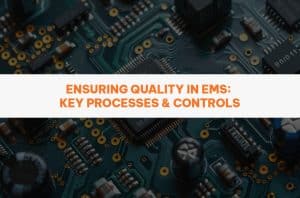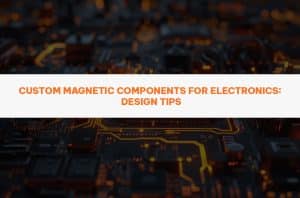India’s electronic gadgets and devices making capacity is steadily increasing and the main drivers are Make in India campaign and increasing demand from automotive, IoT, medical, and consumer electronics. All the companies involved are trying their best to come up with new ideas and the main aspect which will decide who will win this race is the selection of the right PCB assembly partner.
It is not only the price that dictates the establishment of a PCB assembly partner in India that is trustworthy, but also the partner’s capability to ensure top-notch quality, deliveries on the agreed schedules, and willingness to work well together for a long period. Here are the factors to consider when choosing the right partner who will play a role in your design turning into a trustworthy product.
Technical Capabilities Assessment
A perfect PCB assembly partner must have the ability and knowledge to provide service in more than one assembly process such as Surface Mount Technology (SMT), Through-Hole Technology (THT) and mixed assemblies.
Moreover, the partner has to deal with:
- Components and BGAs that are fine-pitched;
- Multilayer and HDI PCBs;
- Intensive prototypes and large-scale production.
To add more, seek partners that offer support in Design for Manufacturability (DFM) and Design for Testability (DFT). The feedback on the design at the early stage can prevent mistakes that will cost you and, on the other hand, can enhance the entire yield.
Quality Certifications and Standards Examination
Quality management is the mainstay of making electronic products. It is crucial that your partner adheres to the international standards which are widely recognized and also has the following certifications:
- ISO 9001 – Quality Management
- ISO 13485 – Medical Devices
- AS9100 – Aerospace Applications
- RoHS & IPC-A-610 Compliance – Environmental and workmanship standards
The below-mentioned certifications guarantee that the application of standardized procedures, material traceability, and inspection consistency — which are vital for reliability in the long run — will be the case.
Assess Equipment and Technology
Modern PCB assembly demands precision, and that depends on advanced equipment. Look for a manufacturer that uses:
- High-speed pick-and-place machines
- Reflow and wave soldering systems
- Automated Optical Inspection (AOI) and X-ray inspection
- In-Circuit Testing (ICT) and Functional Testing
Automated and well-calibrated systems reduce human error, increase throughput, and maintain quality consistency — especially important for high-density boards and fine-pitch components.
Review Supply Chain Strength
A reliable PCB assembly partner in India should have a robust supply chain network for sourcing components efficiently and ethically.
Ask how they manage:
- Component procurement and counterfeit prevention
- Lead time variability
- Obsolete or end-of-life parts
A strong sourcing capability ensures cost stability and production continuity, even during component shortage
Examine Testing and Quality Control
The difference between a good product and a great one often lies in testing. Choose a partner with comprehensive in-house testing capabilities, such as:
- AOI and X-ray inspection
- Functional and in-circuit testing
- Environmental or stress testing (for mission-critical products)
This ensures every board leaving the facility is performance-verified and production-ready.
Communication and Project Management
Efficient communication can save weeks in a production schedule. A dependable partner should assign a dedicated project manager who keeps you updated on timelines, component availability and process changes.
Transparency, prompt responses and collaborative engagement are indicators of a company that values long-term relationships over short-term gains.
Scalability and Flexibility
The perfect partner for PCB assembly should stand by your product throughout its life cycle — from prototyping to mass production. They must have the capability to scale up or down the volumes quickly without compromising on quality and delivery timings.
A partner with flexibility who can change in tune with the market and improve upon the existing product and all such requirements will allow your business to grow without any scaling difficulties.
Cost vs Value Comparison
It’s easy to sway towards the least expensive quote, however, the most economical option isn’t always the smartest. Total value should be assessed — encompassing reliability, delivery time, testing quality and technical support.
In most cases, the price increase is very little but, at the same time, it increases the pluses e.g. higher yields, less waste and quicker market readiness — all of which save money in the long run.
Check Experience and Reputation
Get client references or case studies from identical sectors as a requirement of potential partners. Well-established ECMs with a solid reputation and a proven track record certify that they offer process maturity and consistent performance.
Also, keep an eye on companies with several years of experience — they are more likely to have stable teams, polished workflows and robust supplier networks.
Local Support and Partnership Mindset Should Be the Priority
The selection of the PCB assembly in India along with local support will result in quicker communication, shorter transit times, and more effective control over the costs. Apart from the services, look for an organization that serves as a strategic partner rather than just a vendor — one that is equally committed to quality and innovation.
Conclusion
The selection of the right PCB assembly in India is a strategic decision to determine the performance, reliability, and success of your product in the market. The ideal partner is the one that possesses technical expertise, certified processes, and open communication, so your design can be brought to life with efficiency and consistency.
In the fast-moving world of electronics, a strong manufacturing partner isn’t just a supplier — it’s the foundation of your product’s success. Choose wisely and your innovation will have the support it deserves from concept to completion
FAQ
What should I look for in a PCB assembly partner in India?
When choosing a PCB assembly partner in India, focus on technical capabilities like SMT, THT and mixed assemblies, along with certifications such as ISO 9001 and IPC-A-610. Also, consider communication, testing and scalability.
Why is certification important for PCB assembly companies in India?
Certifications like ISO 9001, ISO 13485 and RoHS compliance ensure that the Indian PCB assembly company follows strict quality management, material traceability and industry best practices for reliability.
How do I evaluate the technical expertise of a PCB manufacturer in India?
Check if they have advanced equipment such as AOI, X-ray inspection and high-speed pick-and-place machines. Also, look for DFM and DFT support to improve design quality and reduce production errors.
Is it better to choose a local PCB assembly partner in India?
Yes, partnering locally improves communication, reduces logistics costs and shortens lead times. Local manufacturers in India also offer quicker support and better oversight throughout production.
How much does PCB assembly cost in India?
PCB assembly costs in India vary based on board complexity, volume and components. However, choosing a turnkey partner with in-house services can reduce total costs through better efficiency and reduced coordination overhead..


